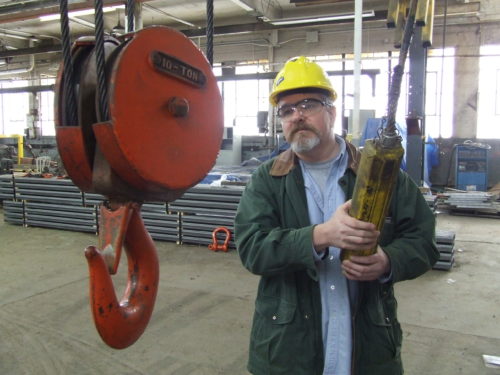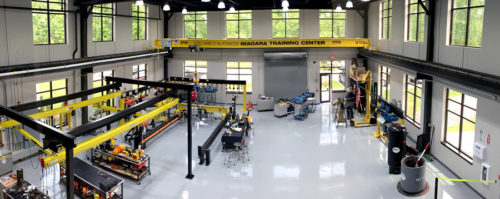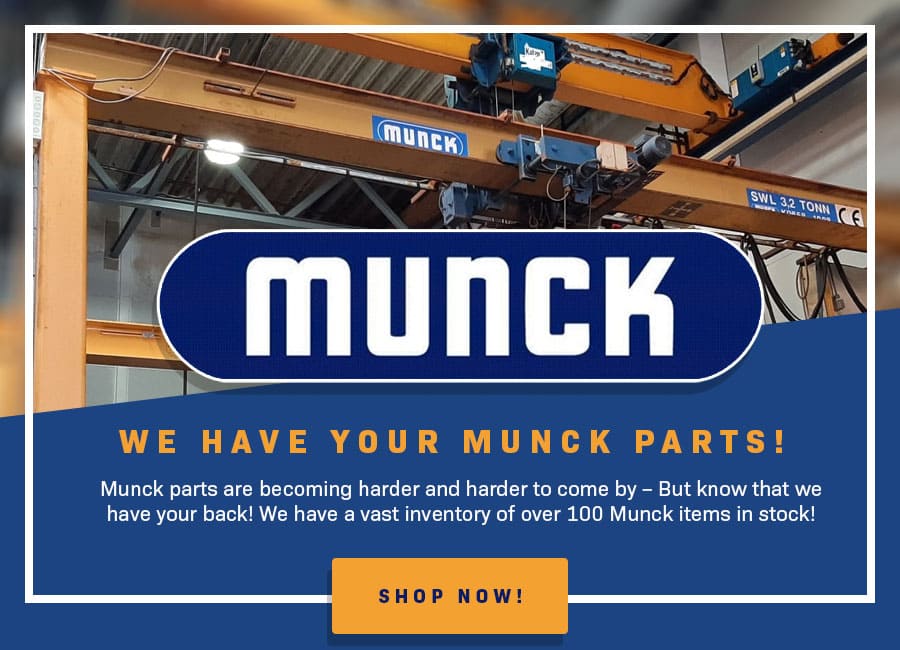The Critical Role of Crane Service and Training Materials
Leave a Comment
Crane service and proper operator training play a pivotal role in maintaining the safety, reliability, and efficiency of material handling equipment. At American Crane & Equipment Corporation (ACECO), we offer comprehensive crane service solutions and training materials to help businesses maximize productivity while ensuring compliance with OSHA regulations and industry standards.
Enhancing Equipment with SafWatch™ Technology
American Crane’s SafWatch™ device is a prime example of how safety and service intersect. Designed to exceed the requirements of NUREG 0554 and ASME NOG-1, SafWatch™ enhances new or existing equipment by providing a fail-safe control system. It detects and addresses critical issues like overspeed, drivetrain discontinuity, and uncommanded motion. SafWatch™ automatically applies brakes when faults are detected, preventing accidents before they happen. Incorporating this advanced system into your crane maintenance plan can significantly reduce the risk of costly downtime and enhance operational safety.
Comprehensive Crane Service and Maintenance
In addition to offering advanced safety solutions, American Crane provides 24/7 crane service to keep your operations running smoothly. Our certified technicians conduct OSHA inspections, preventative maintenance, and emergency repairs, ensuring your cranes are in optimal working condition. We minimize downtime and keep your project on track by promptly handling repair needs, thanks to our large stock inventory of crane components and parts.
Our services also include free site visits to evaluate your specific needs, competitive pricing, and the ability to perform load testing up to 200 tons. As a certified repair center for Columbus McKinnon (CMCO) and Munck, we can refurbish, modify, or rebuild cranes of any make or size, ensuring full compliance with industry standards.
Crane Training for Optimal Safety and Performance
Proper training is essential to ensure that operators are fully aware of potential safety issues and can handle crane operations with confidence. ACECO’s training programs cover crane and hoist operation, operator daily inspections, and more. These programs include classroom instruction, student manuals, practical field training, and written examinations to ensure that operators are well-prepared to perform their duties safely.
By investing in crane service and operator training, businesses can avoid costly accidents, improve worker productivity, and reduce operating costs. American Crane ensures your equipment operates at peak efficiency and provides your workforce with the knowledge and skills to maintain a safe and productive environment through our commitment to safety and service.
For more information on how American Crane can support your service and training needs, contact us today or visit our store to explore our full range of products and services.




 Even the most experienced
Even the most experienced  Columbus McKinnon Corporation (CMCO)’s Crane and Hoist Inspection and Certification training was professionally developed by our full-time training staff. The program, the most comprehensive training course available in the industry today, applies to all brands of
Columbus McKinnon Corporation (CMCO)’s Crane and Hoist Inspection and Certification training was professionally developed by our full-time training staff. The program, the most comprehensive training course available in the industry today, applies to all brands of 